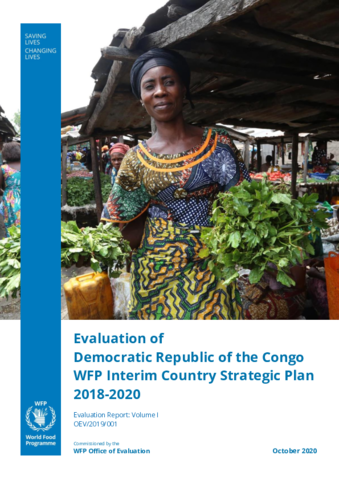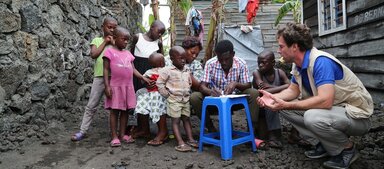
The evaluation was commissioned by the independent Office of Evaluation to serve the dual purposes of accountability and learning to inform the preparation of the new Country Strategic Plan (CSP) for DRC.
Conducted between October 2019 and March 2020, the evaluation assessed WFP’s strategic positioning and role and the extent to which WFP has made the strategic shift expected by the interim CSP; WFP’s contributions to strategic outcomes; efficiency; and the factors that explain WFP performance.
The evaluation concluded that:
- Thanks to its strong capabilities in assessments, food assistance, supply chain and fundraising, WFP has been able to respond to consecutive and increasing emergencies in DRC, but the growing food assistance needs were only partially met due to funding constraints.
- WFP’s operations appear at times stretched to the limit because of staffing gaps and inadequate systems for internal monitoring and risk management commensurate with the scale of operations and the setting.
- There is also room for building more strategic partnerships to better integrate resilience and peacebuilding into WFP assistance, so that WFP can make a larger contribution to addressing structural food security and nutrition vulnerabilities in DRC.

